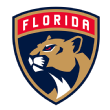Sports
How the Stanley Cup will be won — based on historical comps for Panthers vs. Oilers

This year’s Stanley Cup Final between the Florida Panthers and the Edmonton Oilers, with Game 1 on Saturday (8 p.m. ET, ABC/ESPN+), comes with many fascinating unknowns. For instance, it’s unknown whether the battle of best player versus best team will be won by Connor McDavid or the Panthers, respectively, and we don’t know whom the big travel distances of the series — the teams are located a Finals-record 2,541 miles apart — will favor.
But in terms of the two teams’ colliding playing styles and statistical résumés, some guesses can be made about how the Oilers-Panthers matchup might go by looking at similar Stanley Cup Finals from the past.
Along those lines, we’re taking inspiration from an exercise we ran before the playoffs, in which we looked for the past champions most comparable to this year’s top contenders based on a variety of statistical indicators: Florida’s doppelgänger? The 2007 Anaheim Ducks. And Edmonton’s? The 2001 Colorado Avalanche.
This time around, we are adding an extra twist: Rather than looking at the most similar matches for just one team at a time, we searched for the most similar pair of Finals combatants to Edmonton and Florida, using their playoff stats to date.
Among the indicators we looked at were postseason winning percentage, goals-per-game differential, goals scored/allowed relative to league average, and goaltending performance, in addition to more esoteric categories such as a team’s dependence on its power play, the production of its top star, the share of its offense coming from the blue line and how many penalties it takes. Converting each stat to its percentile rank relative to all Final teams, and weighting the more important categories more, we found the combinations of Final teams since 1980 (which was the first season of the NHL’s 16-team playoff bracket) that were most similar to Florida and Edmonton.
Amazingly, when we look at the 10 most similar Final matchups, the Oilers and Panthers are split evenly, with five comparable series won by each current team’s equivalent from the past. So for both squads in this year’s Final, let’s break down the five most similar series that could portend a victory for each side in 2024.
1:08
Panthers GM tells McAfee how much Tkachuk means to the Panthers
Panthers general manager Bill Zito explains why Matthew Tkachuk has been so important to the team’s success.

Playoff record: 12-5 (.706)
Goals per game: 3.24 | Goals against per game: 2.29
Among their many talents, the Panthers’ defining characteristic is their physicality. Built in the image of their most gifted player, Matthew Tkachuk, they are just as comfortable beating and banging, playing tough defense, aggressively forechecking and scrapping as they are sniping goals. It just makes sense that several of Florida’s most comparable paths to winning featured physical mismatches against teams that played more of a finesse style.
Most similar historical Cup Final wins:
1. 1997: Detroit Red Wings beat Philadelphia Flyers 4-0
Going into the 1997 Final, much was made of the bruising Flyers’ size advantage over the Red Wings. But by any other measure, Detroit used its toughness more effectively. For instance, the Red Wings were vastly better on defense, despite averaging more penalty minutes per game — many of which came by surviving the bitter Western Conference finals feud against the Colorado Avalanche.
When they got to the Final against Philly, the Red Wings were deeper and more battle-tested, and they steamrolled a Flyers squad that was overly reliant on its offensive star power. The 2023-24 Oilers’ profile is strikingly similar to those Flyers’, though they might avoid the same fate with a power play more poised to capitalize on the Panthers’ penalties.
2. 2007: Anaheim Ducks beat Ottawa Senators 4-1
This is perhaps the archetypal example of what happens when a finesse team goes up against a rugged one with the Cup on the line. The Senators were a great team that went into the Final with a 12-3 playoff record coming out of the East, but they were no match for Chris Pronger, Scott Niedermayer, Ryan Getzlaf, Corey Perry and the rest of a Ducks lineup that was a testament to the power of sheer nastiness.
When the 2023-24 Panthers made their own turn toward a more physical style, you can bet general manager Bill Zito had the ’07 Ducks at the forefront of his mind.
3. 2016: Pittsburgh Penguins beat San Jose Sharks 4-2
This matchup wasn’t all about a differential in nasty play — neither the Penguins nor the Sharks played with a particular edge that way. It was about whether Pittsburgh’s balance would prevail over a San Jose team that leaned a lot on its offensive stars to produce. (Logan Couture, Joe Pavelski and Joe Thornton combined for 74 points in 24 playoff games despite 2016 being a recent low point for scoring.)
For a team with big names, Pittsburgh was deep — 12 different Pens recorded multiple points in the Final — and that helped them keep a lid on most of the Sharks’ stars and dictate the majority of play in the series, with the help of some timely scoring late in close games. Nearly a decade later, Florida is also the type of team that thrives on that game plan.
Other comparable winning matchups: 1992 (Pittsburgh Penguins beat Chicago Blackhawks 4-0); 2010 (Chicago Blackhawks beat Philadelphia Flyers 4-2)

Playoff record: 12-6 (.667)
Goals per game: 3.50 | Goals against per game: 2.61
The Oilers are all about offense — specifically, scoring supplied by the mega talented core of McDavid, Leon Draisaitl, Ryan Nugent-Hopkins, Zach Hyman and Evan Bouchard, along with a power play that scores on a playoff-high 37% of its chances. So it’s not surprising Edmonton’s historical doppelgängers are generally teams with star-powered, high-octane offenses who overcame deficiencies on defense — and especially in net (sorry, Stuart Skinner) — to win the Cup anyway.
Most similar historical Cup Final wins:
1. 1980: New York Islanders beat Philadelphia Flyers 4-2
The 2023-24 Oilers would be thrilled if they could jump-start a dynasty the way the Islanders did in 1980, winning the first of what would be four consecutive Cups. New York was up against a balanced and physical Flyers team not too far removed from the Broad Street Bullies era, but the Isles’ stars shined — Mike Bossy, Denis Potvin, Bryan Trottier and Clark Gillies had 36 points in the six-game Finals — and Billy Smith played well enough in net to win.
2. 2018: Washington Capitals beat Vegas Golden Knights 4-1
In a more recent example of offense and star power prevailing over toughness and depth, the Capitals won in 2018 to give Alex Ovechkin his first (and to date, only) Stanley Cup. Though Vegas’ background as an expansion team makes it an imperfect parallel for the current and defending East champion Panthers, the Golden Knights did provide an example of a strong playoff defense that was solved by Washington’s ensemble of scorers as the Caps won four straight to close the series.
Plus, McDavid and Ovi are fascinating comparables, as both have been dogged for years with the reputation of being a great player on a team that couldn’t get over the hump, even if it took Edmonton’s superstar a little less time to reach his first Final appearance than it took the Great Eight.
3. 2009: Pittsburgh Penguins beat Detroit Red Wings 4-3
If the 2024 Final plays out like things did in ’09, we are going to be in for a real treat. Pittsburgh-Detroit was actually a rematch of the previous year’s Final (so both teams were repeat Finalists, rather than just one), when the Penguins fell just short.
For Pittsburgh, everything was geared toward getting back with roughly the same star-powered core — sans Marian Hossa, who defected to Detroit — and they found the Red Wings waiting for them again in the Final. Losing each of the series’ first two games, and three of the first five, Pittsburgh rallied to win Game 6 at home and Game 7 on the road, both by 2-1 margins, to hoist the Cup. This year’s Edmonton fans probably wouldn’t appreciate that level of drama, but the rest of us would love it.
Other comparable winning matchups: 2008 (Detroit Red Wings beat Pittsburgh Penguins 4-2); 2017 (Pittsburgh Penguins beat Nashville Predators 4-2)
1:09
Trivia: Think you know the Stanley Cup?
Before the Panthers’ matchup vs. the Oilers for the Stanley Cup, test your knowledge with some trivia.
So, who has the historical edge?
As mentioned earlier, five of the top 10 most similar Cup Final matchups since 1980 were won by the team that was Edmonton’s equivalent in the series, while five were won by the team similar to Florida. That type of even split confirms what we already know about this year’s championship battle: the margin is very thin between these teams and their odds of winning the Cup.
That said, history does seem to give a slight nod to the Panthers here.
Both of the two most similar matchups — the 1997 and 2007 finals — were won by the Florida-like team in the pairing, as were three of the top four and four of the top six. It seems difficult, in this exercise at least, to discount the parallels involving tough, balanced, physical teams like the Panthers running roughshod over their more offensively minded, star-powered counterparts.
And if it feels like we barely touched on goaltending, that’s because neither team’s netminder has been amazing by the standards of teams competing in the finals. But Florida’s Sergei Bobrovsky has certainly been better than Edmonton’s Skinner — and Bobrovsky also has a long (if unpredictable) history of elevating his game to a superhuman level at times.
Of course, it is fair to wonder whether the ingredients for winning a Stanley Cup in 1997 or 2007 are the same as they are in 2024. Perhaps the conditions of the contemporary game, with a greater emphasis on offense than in decades prior, will also place greater emphasis on Edmonton’s strengths and mitigate its weaknesses. But some rules of thumb never change in playoff hockey — and one of those is that a rough-and-tumble, physical team with previous experience in the Final is really hard to beat.


)






